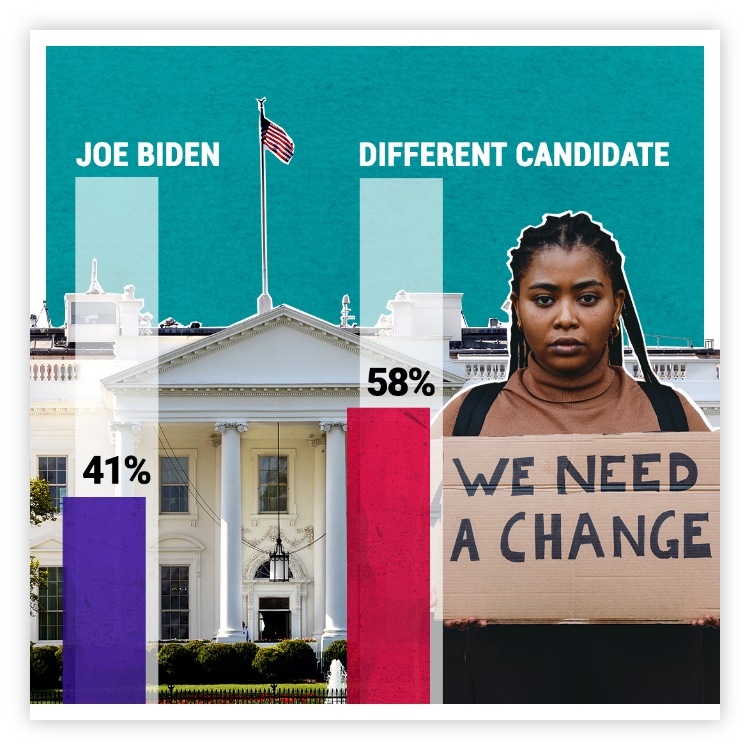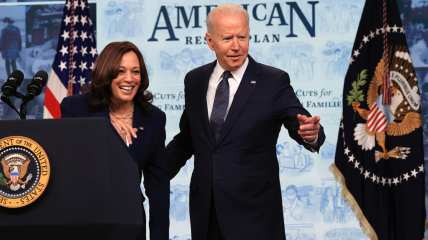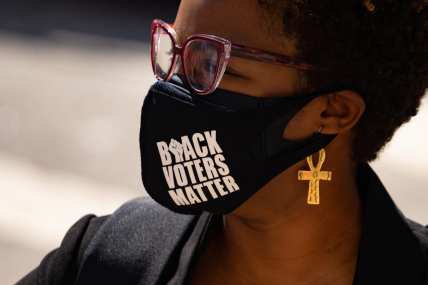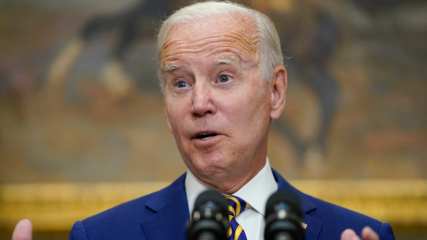Young Black voters could be essential in future elections, analysis of theGrio/KFF survey shows
In the new Survey of Black Voters from theGrio and KFF, Black voters ages 18-29 are particularly disdainful of President Joe Biden seeking a second term.
Political candidates are making concerted efforts to appeal to young voters and address social and economic issues that directly affect their generation most. And, with good reason. There’s a generational gap between voters: the diverse youth and aging white adults, the so-called “brown and gray.” Moreover, young people of color are an increasingly important voting bloc.
“What you now have is a brown, a more diverse and a younger voting base,” explained LaTosha Brown, co-founder of the Black Voters Matter Fund, in a statement to theGrio. They’re shaping public policy now, and they’re the new up-and-coming vote that will shape public policy going forward, said Brown.
Most Black youth voters say “no” to Joe Biden for 2024. In the new Survey of Black Voters from theGrio and KFF, Black voters ages 18-29 are particularly disdainful of President Biden seeking a second term: 71% said they want the Democratic Party to nominate someone else in the next election. That’s compared to four in 10 Black voters overall who said they think the Democratic Party should renominate Joe Biden in 2024, and 58% of Black voters who think someone else should be nominated.
Do you think the Democratic Party should renominate Joe Biden as the party’s candidate for President in 2024, or do you think the party should nominate a different candidate for President in 2024?
Eight in ten Black voters ages 18-29 support Congress passing protections for same-sex marriage, and they’re the only age group with more than half (56%) in support of allowing transgender student-athletes to compete on sports teams in alignment with their gender identities.
“I think the Black vote has consistently been a progressive vote. It has been the vote that has always leaned more towards progressive policies,” said Brown.
According to an October report on a survey of Americans ages 18-29 conducted by Data for Progress, a progressive think tank and polling firm, young Americans want to see “bold policy action” taken by Congress to codify abortion rights, strengthen gun laws to curb violence and address climate change. And, they’re willing to band together to make their voices heard loud and clear.
“From the Sunrise Movement to March for Our Lives, young people are already leading movements to push for progressive change. By a +48-point margin, young Americans across party lines support the use of protests to advance causes that they support,” says the report.
Young voters aren’t just vocal, they show up. They aren’t the largest group in the electorate, said the executive director of elections and surveys for CBS News, Anthony Salvanto. But if they show up, it could be a “turnout for the ages,” he said in an Oct. 19 interview on CBS Mornings.
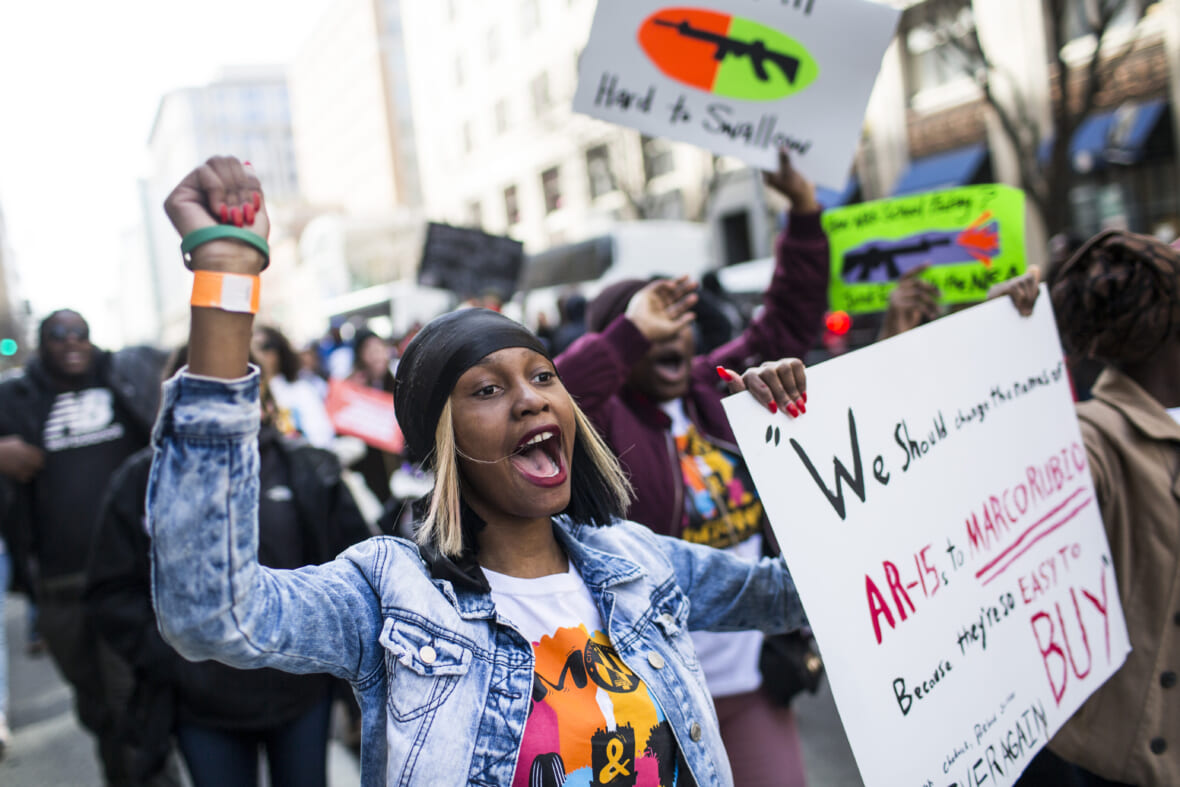
A 2021 study from the nonpartisan Center for Information and Research on Civic Learning & Engagement (CIRCLE) at Tufts University estimates that half of voters ages 18-29 cast a ballot in the 2020 presidential election. Compared to 2016, turnout increased 39%, “likely one of the highest rates of youth electoral participation since the voting age was lowered to 18” in 1971.
Those looking to woo youth voters, especially young voters of color, are taking note: Bold moves from the White House and movements driven by social justice hone in on the interests of this essential demographic.
It may be the midterms, but President Biden, the presumptive Democratic nominee in the next election, is using the opportunity to get a jump on 2024 and cast Democrats who are facing off in November in an admirable light.
“In politics, you’ve got to get the work done, but you’ve also got to let people know that you’re getting the work done,” North Carolina state Representative Terry Brown told Bloomberg in an October report. Brown, a Charlotte Democrat, said Biden’s recent pardon for federal marijuana possession charges and student loan forgiveness program are “tangible steps” that voters can appreciate because they see the effects of them more clearly than broader legislation from Biden. “Sometimes it takes these big splashy announcements to get people’s attention,” he said.
LaTosha Brown’s Black Voters Matter engages HBCU students as part of its Get Out The Vote bus tour. The year’s “We Won’t Black Down” campaign kickoff coincided with National Black Voters Day on Sept. 16 and will continue with stops in key states in the lead-up to Election Day. “Black voters and Black people have always stood [as] a vanguard. I think, once again, we are needed to stand [as a] vanguard, that we will make the difference because I do think that we are the leverage vote.”
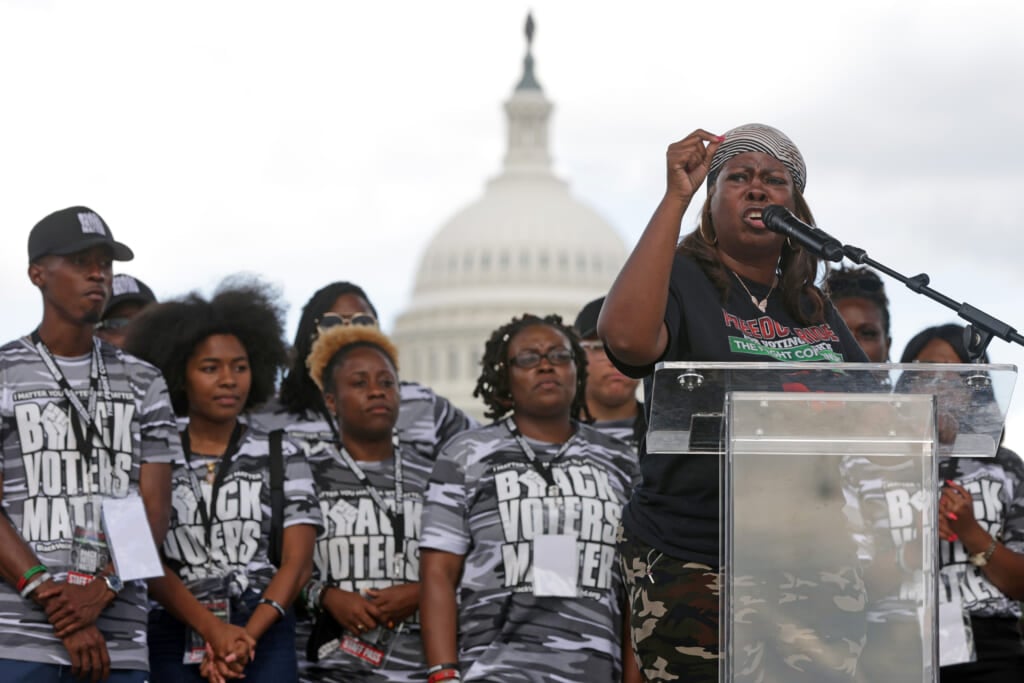
HBCUs have long been a critical conduit to reach Black students and engage Black young people. Senate Democrats held their annual issues conference at Howard University in March. Biden gave the commencement speech at South Carolina State University last year (albeit amid controversy over a spending bill that proposed $10 billion for HBCUs that eventually passed).
Vice President Kamala Harris made visited to SC State and Claflin University in September.
“She came down, and she came to socialize with us. She came to take pictures with [us]. She came to speak with us, to know our names,” SC State student Lataye Walker told CBS-affiliate WLTX. HBCUs are increasingly being recognized as more than a prop and more as a stakeholder to engage and work alongside. Harris, a proud Howard grad and member of the historically Black Alpha Kappa Alpha Sorority, Inc., continues outreach to her Divine Nine sisters on voting and abortion rights. After all, “one of [their] own” is in the White House now.
An August episode of MSNBC’s Into America podcast, “The Gen Z Midterm Test,” brought together three Atlanta HBCU students together in conversation with host Trymaine Lee.
William Morris, from Morehouse, emphasized the importance of HBCU students’ vote—especially in a swing state like Georgia. “I think people often know that the road to election goes through the Atlanta University Center,” a hub of HBCUs Morehouse College, Spelman College and Clark Atlanta University.
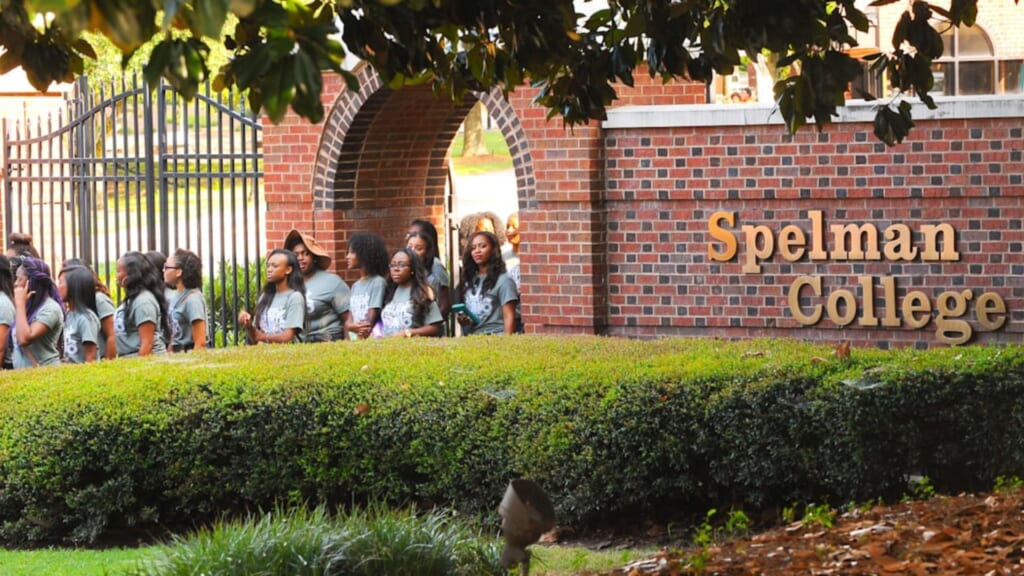
Spelman political science student Monique Vaz said, “I think that a lot of the people in the Democratic Party are playing very moderate because of how Trump polarized the nation into ‘You’re either this or that.’ But, I think that, personally, we need more liberal solutions to fix” what’s happening in this country, said Vaz.
Despite the far-reaching impacts of student debt relief and drug pardons, many critics say that it’s a good start, but these efforts don’t push far enough.
Fifty-eight percent of students receiving federal Pell grants are Black, and 94% come from families that have incomes less than $60,000 per year. A 2021 Urban Institute study analyzes the outcomes of several different student loan forgiveness program variations. A “Pell-based approach would target borrowers from lower-income backgrounds” and “disproportionately benefit Black borrowers.”
Researchers posited that the cost of forgiving the cumulative amount of Pell dollars received by a student while in college is roughly the same as forgiving up to $10,000 for all borrowers. Under Biden’s plan, Pell recipients have $20,000 in student loans forgiven and low- to middle-income borrowers have $10,000 forgiven.
But, does this plan, which Biden’s Administration said will “help narrow the racial wealth gap,” actually work toward that end in a meaningful way?
Black college graduates owe an average of $25,000 more in student loan debt than their white counterparts. And, more than 50% of Black student borrowers report their net worth is less than what they owe in student loan debt. Ten thousand dollars, even $20,000 in loan forgiveness, covers only a small fraction of what some Black borrowers owe.
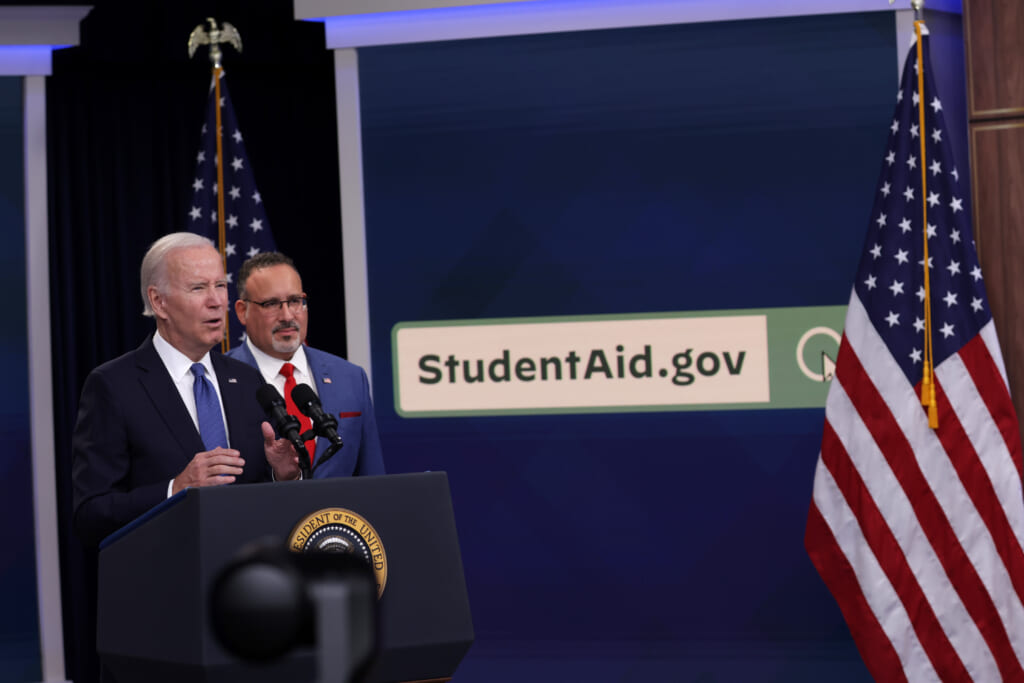
A May report prepared for Sen. Elizabeth Warren, chair of a congressional economic growth subcommittee, said $50,000 in student loan debt forgiveness was optimal from a fiscal and racial equity perspective. Thirty million people, 76% of borrowers, would have the debt zeroed out. The number of poorest borrowers would shrink from 15% to 2%. According to the report, Biden’s $10,000 cancellation plan still leaves 83% of Black borrowers in debt. Under the alternative $50,000 cancellation plan, 33% of Black borrowers would remain in debt, a 50% difference.
Biden’s executive pardon for all prior offenses of “simple possession” of marijuana is also viewed as problematic by some. For one, the change only applies to federal possession charges, which impact about 6,500 people. And, most of these people are also serving time for more serious offenses like trafficking or drug distribution.
Pardons for state charges would open doors for many more people (likely with lesser charges), allowing them to better access housing, employment and other opportunities post-conviction. And, the pardon doesn’t address marijuana’s drug classification. Biden did tap the attorney general to begin the review process to reschedule marijuana, currently classified as a Schedule I drug in the same group as heroin and ecstasy. But, Biden’s past reluctance toward decriminalization, which a record-high 68% of Americans support, may be a factor in youth voters’ perceptions of his willingness to support their progressive agenda.
Black voters, youth especially, want Democrats to move from the safety of being moderate and centrist to more liberal, progressive policies to ameliorate the country’s sociopolitical division.
Vaz, the Spelman student, thinks certain Democrats are trying to “push the envelope” toward change while others are content being quiet and complacent. “I think that they ran on these platforms, so they need to really be acting on them. If not, they will see what happens in November,” she said.
About the Survey
The Survey of Black Voters is the first partnership survey between theGrio and KFF, a nonprofit organization focused on research and analysis of health and other national issues. Teams from KFF and theGrio worked together to develop the questionnaire and analyze the data, and both organizations contributed financing for the survey. Each organization is solely responsible for its content.
The survey was conducted Aug. 24–Sept. 5 with a nationally representative, probability-based sample of 1,000 adults who identify as Black or African American and are registered to vote. The sample includes all voters who identify as Black or African American, including those who also identify as Hispanic or multi-racial. The sampling design includes Black registered voters reached online through the SSRS Opinion Panel and the Ipsos KnowledgePanel; to reach Black voters who do not use the internet, additional interviews were conducted by calling back respondents who previously participated in an SSRS Omnibus poll and identified as Black and said they did not use the internet. The combined telephone and panel samples were weighted to match the sample’s demographics to the national U.S. population of Black voters using data from the Census Bureau’s 2020 Current Population Survey (CPS) Voting and Registration supplement. Sampling, data collection, weighting and tabulation were managed by SSRS of Glen Mills, Pennsylvania, in close collaboration with KFF researchers.
The results have a margin of sampling error of plus or minus 4 percentage points for results based on the full sample of Black voters. The full methodology and question-wording are available here.
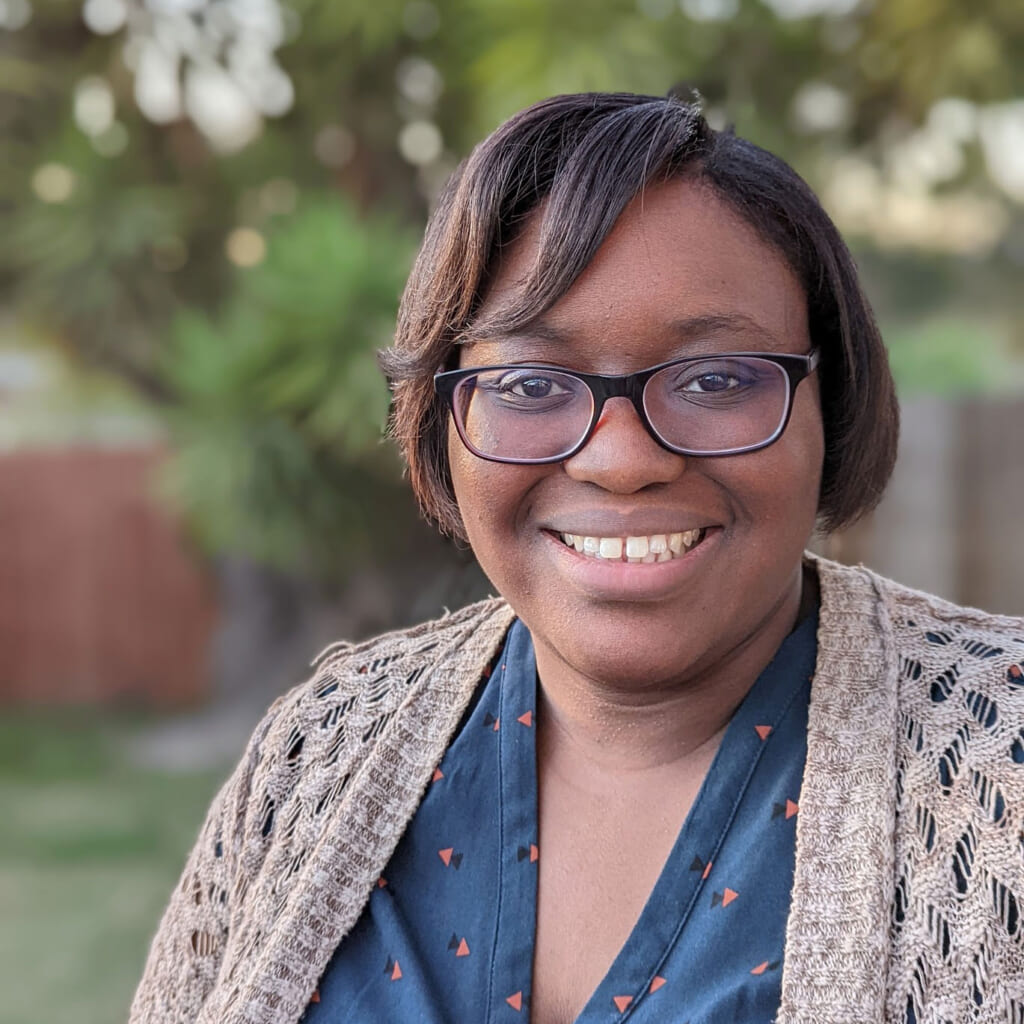
Dana Amihere is a data journalist, designer and developer. She is the founder/executive director of AfroLA, a new nonprofit newsroom that covers greater Los Angeles through the lens of the Black community.
TheGrio is FREE on your TV via Apple TV, Amazon Fire, Roku and Android TV. Also, please download theGrio mobile apps today!
